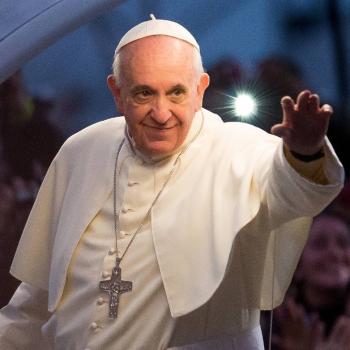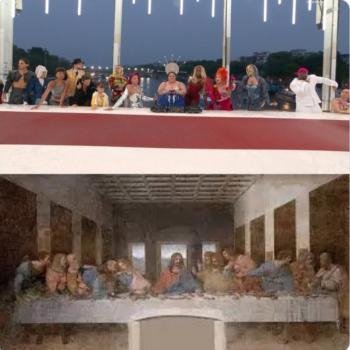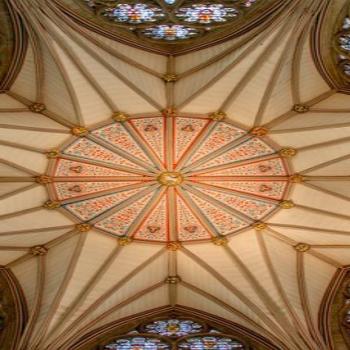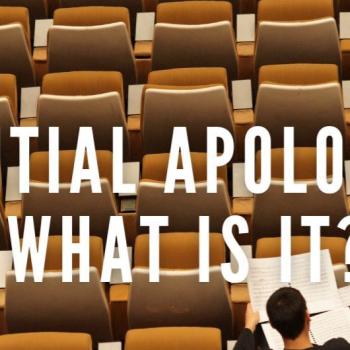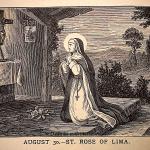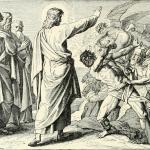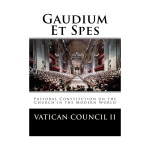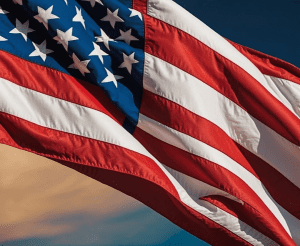
A strong case can be made that politics has replaced baseball as America’s pastime. Regardless of where one lives or whom one interacts with, politics seems to have infected the lives of almost everyone. At the same time, there has been a noticeable decline in religiosity in American life. This is, in my view, not a coincidence.
In this paper, I want to question this obsession over politics and suggest that politics, divorced from religion and faith, has led to a new form of idolatry.
Creating A Wall
When the subjects of religion and politics are discussed, we are often reminded that the United States Constitution demands a separation of Church and State. This view is predicated on a provision of the First Amendment: “Congress shall make no law respecting an establishment of religion.”
It should be observed that nowhere in the Constitution does the phrase “separation of Church and State” appear. The phrase itself appears to have been first used by a Puritan named Roger Williams. For Williams, separating religion from the government was necessary to keep the government from polluting and corrupting people of faith. Moreover, given the political climate in England at the time of the American Revolution, protecting religion from the state would have been a priority for America’s founders.
So, how did the United States go from its founders’ concern about government control of religion to the belief that religion must be kept out of government matters?
To be sure, the French Revolution and the Enlightenment influenced the American concept of separation of church and state. Philosophers such as John Locke and Immanuel Kant saw religion as a cause of violence and, therefore, sought to limit the influence of organized religion on the political sphere. Indeed, this seems to be what Thomas Jefferson had in mind when he wrote of a “wall of separation between the church and the state.”
The Danger Of Godless Politics
It is difficult to argue that in light of the violence spawned by the French Revolution on the one hand and the state-controlled religion of England on the other, keeping religion and government separate seemed wise and even necessary to the burgeoning American Republic. However, it has also led to some dangerous effects.
First, I would argue that political power divorced from a Christian foundation lends itself to totalitarianism. In the absence of God, the government becomes the source of human rights and the foundation of human dignity. This is not an abstract theory. One needs only to examine the history of the twentieth century to see the consequences of purely secular governments.
The second danger is not limited to politics as it concerns objective morality. Is it prudent to expect politicians to be moral if the moralizing power of Christianity has been removed from the public forum?
By objective morality, I mean the conformity or nonconformity of a human act with an independent moral standard. Objective morality is not a human construct; rather, it is the mind of God that is made knowable to human beings by virtue of natural law.
If God is removed from the political process, so is objective morality. Under such circumstances, morality will become the purview of individuals whose sole desire is power. In other words, right becomes whatever those with might say it is.
A New Religion
Ironically, the efforts of secularists to bracket religion out of politics have had the effect of creating a religion out of politics.
I want to cite two instances where one sees evidence of political rhetoric taking on a religious tone. The first comes from a speech by President Barack Obama. “We are the ones we’ve been waiting for.” And again, “You cannot sit back and wait for a savior.” In both quotes, one sees a kind of soteriological language used by a politician.
The second instance is a photo that has recently appeared on social media. The photo depicts a portrait of Jesus with a bandaged ear similar to the one worn by President Trump following an attempted assassination. Is the artist alluding to Mr. Trump as a Christ-like figure?
American Pantheon
Thus far, this paper has been a prelude to the point I would like to make. In America, in our modern culture, politics is idolatry. To understand why I think so, I should provide a definition of idolatry. Put simply, idolatry involves worshipping (placing the greatest value) on a creature or other created thing. It is turning a creature into the Creator. It is making something else into God.
Please think of how the respective political parties have become religions with their own sets of beliefs and rituals. More damning, politicians have become gods and the state the source of salvation. We expect politicians to not only solve our problems and for the government to meet our needs but also for politicians to take the place of God and government to become our religion.
How do we explain this idolatry of politics? First, we must recognize that religion and politics have an inverse relationship. As America becomes increasingly secular (See Decline of Christianity Continues at Rapid Pace), it is becoming more political (See Political Polarization in the American Public).
The inverse relationship between religion and politics is not surprising. Human nature is so construed that it will seek to worship; we are, after all, religious creatures. As the nation becomes more and more secular, as God is pushed more and more from every aspect of society, human beings must find alternatives; they must find another “God.” Politics has simply filled the vacuum of faith created by secularism.
Conclusion
Without question, politics and government have their place in American society. However, it is sheer folly; indeed, it is idolatry to think that politics or the government can take the place of God.
“It is the duty of all nations to acknowledge the Providence of Almighty God, to obey his will, to be grateful for his benefits, and humbly to implore his protection and favor.” – George Washington.





